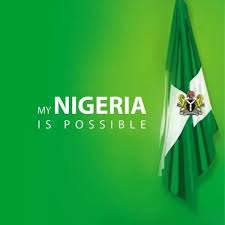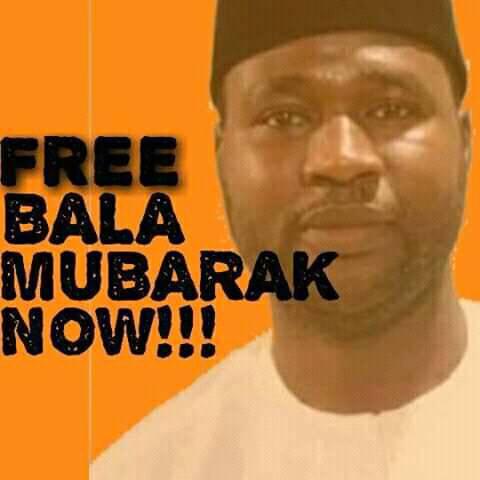
By Emmanuel Ogah Abi
“Ask not what your country can do for you, but rather, what you can do for your country”. This is one JFK’s quote many dishonest Nigerian leaders, sorry, rulers easily recite when they want to “motivate” young Nigerians like myself to give our bests to the same Nigeria (they’re looting and raping blind), and to never give up on her.
Well, I’m not a man of clichés or deep Proverbs, neither am I a man to be fooled by fancy pickup lines. Only actions motivate me.
As a young man with three decades of the real Nigerian jungle experience under his belt, I can boldly say, Nigeria is possibly one of the very, very few, if not the only nation on earth that’d give you a thousand and one reasons every day to give up on her no matter how patriotic you try to be. This essay is possibly the most difficult one I’d have to write, because, to me, it’s like writing a love letter to a man who killed your entire family without remorse, and yet expects you to love him him without judgment. How difficult that can be!
Now let’s get to business; what have I done for Nigeria?
Well, amongst the very many things I’ve done for Nigeria in this my brief life here, for the sake of this essay I’ll focus on just TWO. The choice of these two is not in any way to belittle the rest, but to save word count.
1. I started practicing journalism officially in 2013 with Teachers’ Radio 102.1 fm in Kaduna after graduating with a degree in Engineering (mechanical) from the prestigious Ahmadu Bello University, Zaria.
Having spent almost all my life in the northern region of Nigeria, I have a very good understanding of how endemic the evil practice of Almajirinci is there and how it has in no small way contributed to the backwardness of the region. Despite the widespread condemnation of the practice from all quotas, very little has been done to tackle this menace, making the almajiris easy tools in the hands of politicians to fuel crises in the region. This has made the north the most underdeveloped and crises prone region in Nigeria despite her resources and population.
Between 2010 and 2016, former president Goodluck Jonathan built schools for Almajiris in all the northern states to empower them with both formal and qur’anic education so they can make something meaningful of their lives and also as a way of combating the rising spate of insurgency in the country at the time. In 2014, during the peak of the Boko haram insurgency, I was privileged to be among the few reporters in Kaduna to cover nearly all the schools built by the then government. I was impressed by the foresight of that administration in figuring education as a way of curbing the war. A doctrine- fueled war. GEJ was criticized greatly for that gesture and the schools rejected and left to rot to date.
As I continued my journalistic practice, I became more and more aware of the challenges children faced in the north, and how much little attention was given to their plight, which made me to start advocating for the production of more children oriented programs on radio.
I, amongst many other programs, produced and anchored Voice For The Future, a pidgin English talk show that focuses on children, their challenges, and how we can make their lives better.
Between 2017 and 2020, through the program, we’ve helped over 50 children get saved from abuse and secured convictions for their abusers.
In 2019, I and my good friend Aliyu Abba (who’s also a journalist) and a few other young minds collaborated to form the iAish Foundation with a mandate to get as many as 1000 almajiris off the streets annually and getting them educated with STEM subjects, teaching them handy crafts like shoe-making and painting and also teaching them IT skills to help them be independent in life.
So far, through the help of donations from goodhearted individuals who believe in our effort we’ve enrolled 350 almajiris into the program, teaching them in Hausa language and equipping them with tablets preloaded with learning materials in Hausa language ONLY. They also learn programming/coding on the side.
We are hoping that by the end of 2020, we’d have enrolled 1000 pupils into the program.
This is our little way of giving back to Nigeria by doing for these children what the state could not do for them.
2. According to Premiumtimesng, Nigeria needs an average of 2million units of blood annually to meet her blood demand. And currently, there is just less than 500,000 units met on a year on year basis, leaving a deficit of over 1.5m units. In 2016 I lost my father at the Benue state university teaching hospital, Makurdi, because we couldn’t get the blood group that matched his in time for transfusion.
A year later, my elder brother opened his own hospital in Makurdi and the issue of getting blood donors especially in emergencies was a huge problem.
During my one year stay in Makurdi in 2018, I was overwhelmed by this challenge and started thinking of ways to solve it.
***Article terminates, as requested by the Author***
(c) Emmanuel Ogah Abi 2020




Comments (1)
Nnabuife Chinedusays:
October 1, 2020 at 9:07 pmI worked with Emma in NTI, and he is exceptionally sound. A pity Nigeria is happening to him